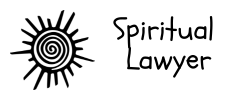I have been studying intuition for eighteen years and teaching it for over four years. I ran a powerful five day challenge from 2020 to 2022 that taught people how to trust their intuition. In June 2021, I launched a podcast called the Intuitive Revolution in Business that you can listen to with this link. And in November 2021, I launched a book called the Intuitive Revolution in Business that you can purchase in my online shop. You could say I am a little obsessed with intuition.
There is a reason. Intuition literally saved me from a bomb attempt in Paris in September 1986. You can read about the bomb attempt (In French) here on Wikipedia.
My biggest mission is to get intuition on the curriculum all the way from Primary Schools to Universities. The reason for this is that intuition saved my life, but also protected me from predators and who wouldn’t want children to trust their gut feelings so that they can be protected.
Well, actually the way the school system as we know it was designed is not compatible with this dream of mine, yet. The reason is that it was designed with a heavy bias towards producing compliant beings. Two hundred years ago, when education was democratised, the agenda was pushed heavily by factory owners who needed employees who were both literate but also likely to follow orders. What better way to do that than by having children sit through classes, with heavy discipline and a huge emphasis on attendance.
Whilst we wait for the school system to be ready for intuition, let’s see what you can do to trust your intuition more. First of all, you need to understand that we are all intuitive. Due to the fact that intuition is taught mostly by psychics, people confuse intuition with psychic gifts and as a consequence, think that only a few people are chosen (psychic) and the vast majority are not. Nothing could be further from the truth.
My definition of intuition is a form of intelligence that does not require thinking. And for most of us it’s either a knowing or a feeling. How do you distinguish between your own thoughts and your intuition. Your thoughts come in a train. I call it the thought train. You have one thought, then another that links into the previous one, and then the third that links to the second and so on and so forth. The logic can sometimes be a little strange but there is a link. With intuition, it’s more like a bubble that comes up. It’s a single thought. And it’s not attached to any train of thought. So you would be thinking about groceries and suddenly, a thought bubble pops up to call your Aunt Mazie. The difference can also be how the thought feels. Let’s take the thought: “Don’t trust her”. If it comes from your own thoughts, it will probably feel yucky. If it is your intuition, it won’t feel bad. At least not right away. It will make you feel calm instead. Your critical mind is going to kick in pretty quickly though, and will try to make you feel bad about it because intuition often takes you out of your comfort zone and your logical mind doesn’t like that. It’s dangerous.
Here are my top three tips to get started:
Tip #1: Be a detective
Tip #2: Don’t attach expectations to your intuition
Tip #3: Learn about your own belief system and your “symbology”
If you would like to start to trust your intuition, my five day signature challenge is now available on Thinkific as a self study course. Head over here to sign up.
The actual podcast episode will go into much more detail about the above, so why not head over to your favourite app to listen to it. Don’t forget to rate the podcast and write a review. And if you think of anyone you think might be interested in it, share it with them.
To listen to the episode in your favourite podcast app, click here.

